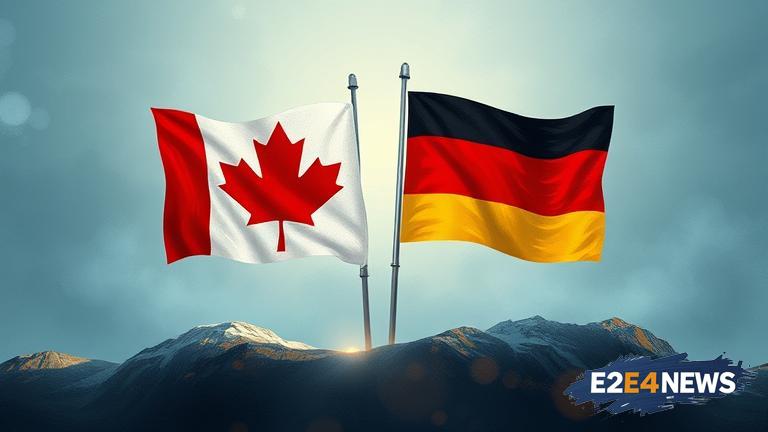Canada and Germany have announced a significant partnership to strengthen their energy ties, focusing on critical minerals that are essential for the transition to a low-carbon economy. The partnership aims to reduce Canada’s dependence on volatile markets and promote sustainable development, while also supporting Germany’s efforts to diversify its energy sources. Critical minerals such as lithium, cobalt, and nickel are crucial for the production of electric vehicles, renewable energy technologies, and energy storage systems. The partnership will facilitate the exchange of knowledge, expertise, and technologies between Canadian and German companies, research institutions, and governments. This collaboration is expected to create new opportunities for businesses, stimulate innovation, and generate jobs in both countries. Canada is rich in critical minerals, with significant deposits of lithium, cobalt, and nickel, while Germany is a global leader in the manufacturing of electric vehicles and renewable energy technologies. The partnership will enable Canada to leverage its natural resources to support Germany’s energy transition, while also promoting the development of sustainable mining practices and reducing the environmental impact of mineral extraction. The agreement is also expected to enhance Canada’s reputation as a reliable supplier of critical minerals, which will help to attract foreign investment and promote economic growth. Furthermore, the partnership will contribute to the development of a more diversified and resilient global supply chain for critical minerals, reducing the risks associated with dependence on a single market or supplier. The collaboration between Canada and Germany will also facilitate the sharing of best practices and expertise in areas such as mineral exploration, mining, and processing, as well as the development of new technologies and innovations. In addition, the partnership will support the development of a skilled workforce in both countries, with a focus on training and education programs that address the needs of the critical minerals sector. The Canadian government has committed to supporting the development of the critical minerals sector, with a focus on sustainable and responsible mining practices. The government has also established a number of initiatives and programs to support the growth of the sector, including funding for research and development, and support for indigenous communities and small businesses. Germany, on the other hand, has set ambitious targets for reducing its greenhouse gas emissions and transitioning to a low-carbon economy, and the partnership with Canada is seen as a key component of this strategy. The partnership is also expected to have a positive impact on the environment, by promoting the development of sustainable mining practices and reducing the carbon footprint of mineral extraction and processing. Overall, the partnership between Canada and Germany is a significant step forward in the development of a more sustainable and resilient global energy system, and is expected to have far-reaching benefits for both countries and the environment. The partnership is a testament to the strong relationship between Canada and Germany, and demonstrates the commitment of both countries to promoting sustainable development and reducing their environmental impact. As the demand for critical minerals continues to grow, the partnership between Canada and Germany is well-positioned to support the development of a more diversified and resilient global supply chain. The partnership is also expected to contribute to the development of new technologies and innovations, and to support the growth of a skilled workforce in both countries. In conclusion, the partnership between Canada and Germany is a significant development in the energy sector, and is expected to have a positive impact on the environment, the economy, and society as a whole.
